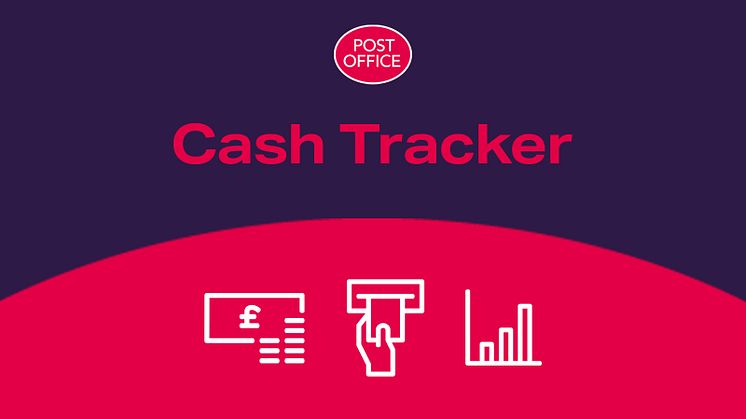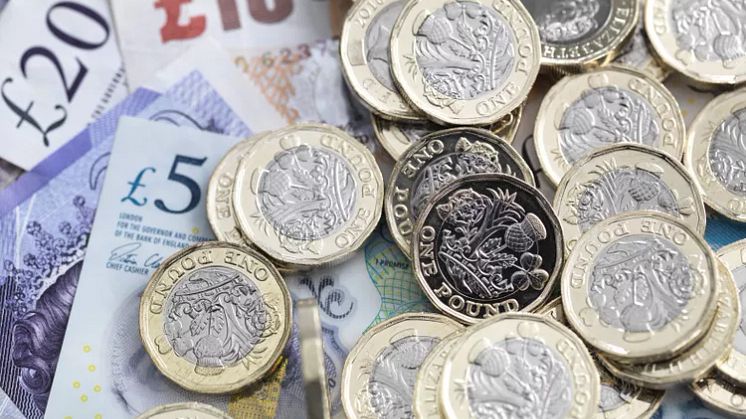
Press release -
Millions of Brits Would Rather Skip Tipping Than Tip Via Card
- The majority of UK adults prefer to leave a token of appreciation with coins, change or notes – with over one fifth only leaving a tip if they have cash to hand
- New research from Post Office reveals millions are tipping less due to the decline of physical cash, as card payments become increasingly popular
- Chartered clinical psychologist Dr Catherine Wikholm reveals the psychological benefits of leaving a cash tip compared to tipping via card
Millions of Brits will avoid leaving a tip if they have to use a debit or credit card.
A study of 2,000 adults revealed when it comes to tipping methods, cash is still king, with 58 per cent preferring to tip with coins, loose change or notes – compared to just 15 per cent who opt for card.
In fact, 39 per cent are more likely to leave a bigger tip when tipping with cash and 21 per cent said they only leave a tip if they have cash to hand.
But in general, 17 per cent claim they are tipping less than they used to due to the decline of physical money, as card payments become more popular.
Cash remains the favoured method due to its more personal feel (52 per cent), concerns over card-based tips not going to who they’re intended for (45 per cent) and people’s wish to control the exact amount by choosing it themselves (40 per cent).
As many as 80 per cent revealed they have avoided tipping if the only option was doing so electronically.
However, 24 per cent admit they tip less now than they used to due to the cost of living, with more than half (51 per cent) saying they feel more pressure to tip when card machines suggest preset amounts or percentages.
For 36 per cent, tipping is more or less the only time they ever use cash, with 60 per cent keeping cash on them specifically for this purpose.
Ross Borkett, Banking Director at Post Office, which commissioned the research, said: “Digital payments are a fundamental part of modern life – except when it comes to tipping.
“Our research shows that for so many people, handing over a coin or a note feels more personal than using a card, and gives reassurance that their tip goes directly to the person they intend it for. This cash connection simply cannot be replicated with a card payment.
“The data also shows a third of people are more likely to leave a tip at Christmas. As people head out for festive gatherings in the months ahead, cash remains a simple, trusted and meaningful way to say thank you – and at Post Office we’re proud to help people stay connected by providing free cash withdrawals and deposits across our branches.”
The research also found restaurants (74 per cent), taxis (42 per cent) and hairdressers (31 per cent) are the places most likely to get a tip from consumers.
And one in five are likely to increase the amount they would tip to try and impress someone.
When it comes to service-based apps like Uber and Deliveroo, 36 per cent like the built-in fee options so they don’t need to work out how much to tip, but in contrast, 34 per cent feel cheated as a result.
It also emerged that of those who have ever worked in a job where they received tips, 46 per cent said it made them feel appreciated, while 39 per cent felt happy and grateful, according to the OnePoll data.
Dr Catherine Wilkholm, chartered clinical psychologist, explains how cash tips can impact both the tipper and the receiver. She explains: “As humans we are wired to seek social validation and have a core need to feel seen and appreciated by others.
“Receiving a tip reinforces a sense of competence and being valued, experiences which over time strengthen self-esteem and confidence.
“Giving a tip can activate the brain’s reward circuitry, giving the tipper a mood boost that psychologists call the ‘helper’s high’ and can also increase feelings of social connection and trust.
"When we physically hand money to someone, it feels real and meaningful, activating a neurological response such as releasing dopamine and a psychological response like a feeling of connection.
“Handing over cash is tangible, social and sensory - it activates more of a neurological response than card tipping and can enhance the psychological rewards.”
TOP 20 PLACES BRITS LEAVE A TIP AND HOW MUCH
- Restaurant - £5.70
- Taxi - £3.90
- Hairdresser - £5.00
- Café - £3.90
- Hotel maid - £6.70
- Food delivery driver - £4.80
- Barber - £4.50
- Bar/pub - £4.60
- Hotel concierge or porter - £5.90
- Tour guide - £6.20
- Cleaner - £7.00
- Beauty salon - £5.70
- Babysitters - £8.30
- Removal van driver - £8.30
- Gardener - £7.10
- Spa or massage therapist - £6.80
- Furniture delivery driver - £7.40
- Dog groomer - £6.80
- Dog walker - £6.30
- Personal trainer - £7.70
Topics
Categories
About the Post Office
- With over 11,500 branches, Post Office has the biggest retail network in the UK, with more branches than all the banks and building societies combined.
- Post Office is helping anyone who wants cash to get it whichever way is most convenient. Partnership with over 30 banks, building societies and credit unions means that 99% of UK bank customers can access their accounts at their Post Office.
- Cash withdrawals, deposits and balance enquiries can be made securely and conveniently over the counter at any Post Office; and the biggest investment by any organisation or company in the last decade is being made to safeguard 1,400 free-to-use ATMs across the UK.
- Post Office is simplifying its proposition for Postmasters with a focus on its cash and banking; mails and parcels; foreign exchange; and; bill payments services.
- Research has found that visits to the Post Office help drive another 400 million visitors to other shops, restaurants and local businesses equating to an estimated £1.1 billion in additional revenue for High Street businesses.
- 99.7% of the population live within three miles of a Post Office; and 4,000 branches are open seven days a week.






